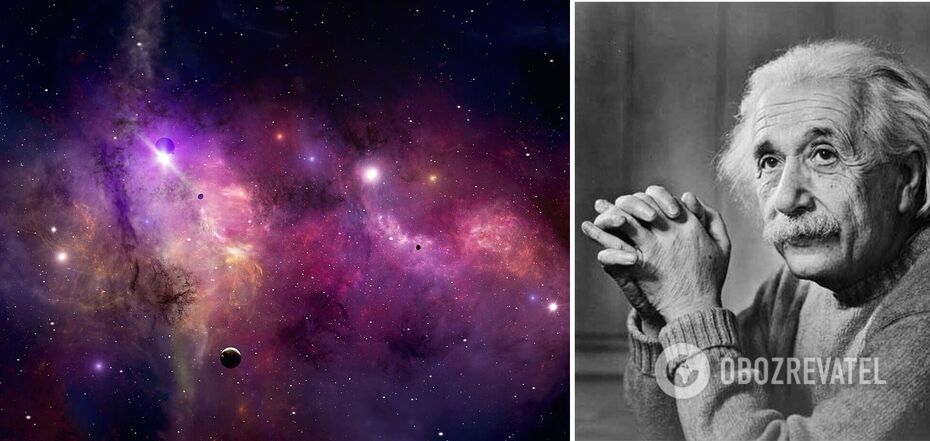News
Einstein's "biggest mistake" may be the key to the mystery of the rapid expansion of the Universe
More than a century ago, the famous theoretical physicist Albert Einstein proposed a "cosmological constant" in his theory of relativity, a type of energy that would ensure the stability of the universe. Subsequently, when other scientists proved that the Universe is expanding, he called his idea "the greatest mistake," but perhaps the brilliant scientist was overreacting.
Brad Tucker, an astrophysicist and cosmologist at the Australian National University, wrote about this in an article for The Conversation. Together with his colleagues, he conducted a study to be published in the Astronomical Journal, which revealed that Einstein's idea could be very useful.
It is known that the atoms and molecules that make up humans, the Earth, and almost everything else that can be seen make up only 5% of the Universe. Another 25% is filled with mysterious "dark matter" that we can't see, but notice traces of by observing its effect on normal matter through gravity.
The remaining 70% of space is made up of "dark energy". This unknown form of energy was discovered in 1998 and is believed to be causing the universe to expand at an ever-increasing rate.
In the study, Tucker and his colleagues were able to measure the properties of dark energy in more detail than ever before. Their data suggest that Einstein's rejected error could be very close to the truth.
General Relativity, developed by Einstein, stated that the universe must either expand or contract. The physicist decided that this was wrong, and so he introduced a "cosmological constant" into his equations, a type of energy inherent in empty space. This made it possible to balance the force of gravity and keep the Universe static.
Later, however, the physicist called this decision his "biggest mistake," as later work by Henrietta Swan Levitt and Edwin Hubble revealed that the universe was expanding.
Already in 1998, it turned out that it was not just expanding, but that this process was accelerating. This hinted that there might be something very similar to Einstein's cosmological constant - what is now commonly thought of as dark energy.
In order to measure the nature of this dark energy, scientists used supernovae and found that dark energy does not change in any way as the Universe expands. That is, it does not spread out and does not become weaker. Scientists measure it with a number called w, which was actually set by Einstein at minus 1.
As Tucker explained, although it is quite difficult to determine, all you really need to do is find a supernova of a particular type and observe it.
In their research, the scientists studied Type Ia (read "one a") supernovae, which are white dwarf stars that often suck in matter from a neighboring star and grow until they reach a mass 1.44 times that of our Sun, and then explode.
It is the aftermath of this explosion that scientists are interested in. Since scientists know how powerful the explosion is in reality, they compare it to the power of the light seen through telescopes and thus can determine how far away from us this explosion occurred.
In total, the study, in which Tucker was a participant, lasted almost ten years. During this time, they saw the explosions of about 1500 stars.
Their calculations showed that the value of w set by Einstein at -1 is probably somewhat inaccurate.
"We found w = -0.80 ± 0.18, which is somewhere between -0.62 and -0.98. This is a very interesting result. It is close to -1, but not quite there. To be a cosmological constant, or the energy of empty space, it would have to be exactly -1," Tucker explained.
At the same time, he does not exclude that Einstein could still be accurate about the value of w, but the existing model of dark energy may not be complex enough. Tucker believes that perhaps scientists need a new model that would suggest that this mysterious energy can change during the life of the Universe.
Subscribe to OBOZ.UA channels in Telegram and Viber to keep up with the latest events.



























